Ik kwam via /. bij deze post van Debian Weekly News, over plannen om een Debian distri met de FreeBSD kernel te bouwen:
Debian with the FreeBSD kernel was the subject of a heated week-long discussion. It seems that since this idea was first conceived in February, a few people have been working on the port. The status of their work can be read about here. Basically, they are using the FreeBSD kernel and libc, and recompiling Debian packages to work on that system. Reactions varied. John Goerzen worries that a version of Debian based on a BSD copyrighted kernel would open the door to third parties taking our work and making it proprietary, and also that "we are essentially giving first aid to software that is dying (and rightfully so) because of its license". Many others disagree with him and have no problems with the BSD license. Others wonder if it wouldn't be technically better, and easier in the long run, to port glibc to FreeBSD, and allow Debian packages to be used unchanged with that kernel and library combination.

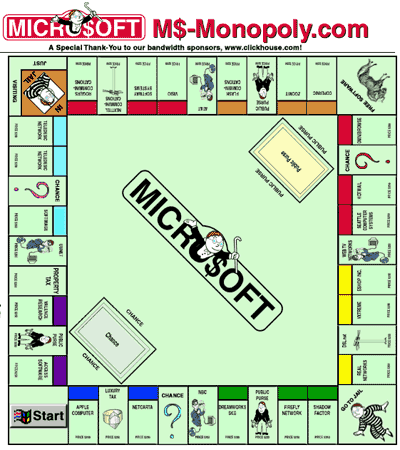
:strip_exif()/i/1349161929.gif?f=fpa)
/i/1345985440.png?f=fpa)
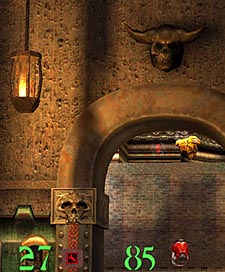

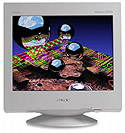 Sitting in front of me as I type this document is Sony's latest offering,
the G500 monitor. Based on the new Sony FD Trinitron™ tube
technology, the G500 is a totally flat 21" (19.8" viewable) monitor
featuring a 0.24mm aperture grill pitch.
Sitting in front of me as I type this document is Sony's latest offering,
the G500 monitor. Based on the new Sony FD Trinitron™ tube
technology, the G500 is a totally flat 21" (19.8" viewable) monitor
featuring a 0.24mm aperture grill pitch.
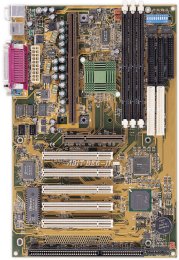 This is a return to form from Abit. While Abit are no longer a stand out presense in the
overclockers market, with most of the top tier manufacturers supported voltage tweaks, to
some extent other mainboard manufacturers have stolen the emperors cloths - and the
cloak fits better too! Abit have had to come up with something pretty special and I think
that Softmenu III may just do the trick. The all-new clock generator, bolstered by tweaks
to Softmenu, allows for virtually unlimited bus speed settings. "Baby stepping" from
83Mhz in 1Mhz right up to 200Mhz means that the last drop of power can be extracted
from a CPU. With these selections comes stability at high bus speeds, a previous Abit
weak point. The BE6-2 could just be the board to extract the last drop out of the 133Mhz
Pentium IIIE!
This is a return to form from Abit. While Abit are no longer a stand out presense in the
overclockers market, with most of the top tier manufacturers supported voltage tweaks, to
some extent other mainboard manufacturers have stolen the emperors cloths - and the
cloak fits better too! Abit have had to come up with something pretty special and I think
that Softmenu III may just do the trick. The all-new clock generator, bolstered by tweaks
to Softmenu, allows for virtually unlimited bus speed settings. "Baby stepping" from
83Mhz in 1Mhz right up to 200Mhz means that the last drop of power can be extracted
from a CPU. With these selections comes stability at high bus speeds, a previous Abit
weak point. The BE6-2 could just be the board to extract the last drop out of the 133Mhz
Pentium IIIE!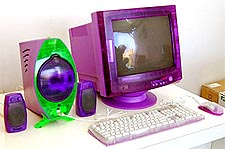
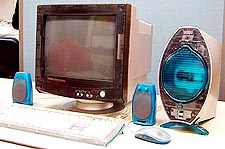
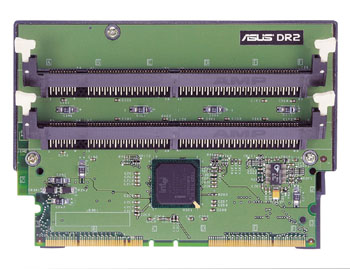
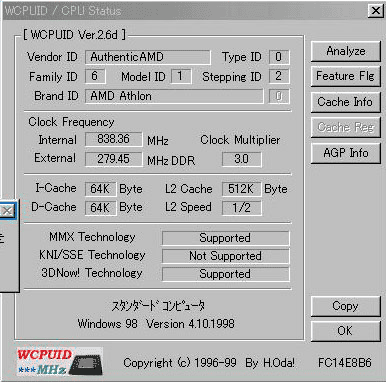
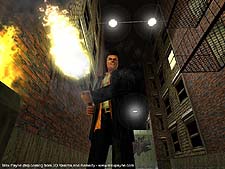

 3dfx Interactive® Inc. (NASDAQ: TDFX) today announced the appointment of Dr. Alex Leupp, 59, to the position of president and chief executive
officer. Dr. Leupp brings more than 25 years of semiconductor industry experience to 3dfx, solidifying the management team for its next stage of
growth. He has been on the 3dfx board of directors since October 1998.
3dfx Interactive® Inc. (NASDAQ: TDFX) today announced the appointment of Dr. Alex Leupp, 59, to the position of president and chief executive
officer. Dr. Leupp brings more than 25 years of semiconductor industry experience to 3dfx, solidifying the management team for its next stage of
growth. He has been on the 3dfx board of directors since October 1998.